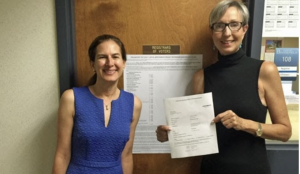It’s rare, but it happens. And sure enough, it did recently in Bridgeport, Conn.: a court-ordered redo of a mayoral election after allegations of misconduct that led state legislators to consider changes to the voting system.
Like all states, Connecticut has strict laws regarding elections—and even more stringent laws for contesting election night outcomes. Yet, misconceptions about these laws, fueled by high-profile court cases and media narratives, are widespread in political campaigns or those seeking legal representation in election matters.
Misinterpretations of election law in Connecticut lead to false impressions and distorted views of the election process and how to best challenge election results. Several already abound. Below are seven myths and the reality of each:
Myth: Uniform Election Processes Across Connecticut
The notion that election processes, from voting by mail to voter registration, are uniform across Connecticut is a common misconception.
Connecticut’s 169 cities and towns function independently, leading to varied interpretations and executions of state election laws. The Secretary of the State’s office is responsible for interpreting election law and who’s eligible to vote. Still, local practices can differ significantly, sometimes leading to issues like refusing secure drop box delivery or mismanagement at polling places.
Myth: Legal Disputes Always End in Court
The need for court involvement in election disputes is only sometimes necessary. The American Arbitration Association emphasizes the benefits of alternative dispute resolution (ADR) methods in resolving election-related disagreements, including vote counting and post-election audits. These approaches offer quicker and more cost-effective solutions compared to litigation.
Campaigns need to explore these alternative avenues of resolution for more minor or technical conflicts.
Myth: Any Voter Can Challenge Results for Any Reason
In Connecticut, the law does not allow just any voter to challenge election results on any ground. The legal framework specifies that only certain parties—typically candidates, political parties or a group of qualified voters—have standing to contest election results. This limitation is in place to ensure that challenges are severe and have a basis in substantial issues affecting the election’s outcome.
Restricting who can challenge election results prevents the electoral process from being overwhelmed with frivolous or unsubstantiated claims. Those who challenge results must present legitimate reasons, usually grounded in evidence of irregularities or legal violations. Examples include allegations of fraud, procedural errors or other issues that could have materially affected the election outcome. These challenges are subject to judicial scrutiny, and the burden of proof lies with the person or party making the challenge.
Myth: Recounts Happen Automatically in Close Races
While Connecticut law provides automatic recounts in certain circumstances, they are triggered only when the results fall within precise and narrow margins. For instance, a recount may be mandated if the vote difference between candidates is less than a certain percentage of the total votes cast. This small number margin is defined by state law and does not apply to every close race.
This law ensures accuracy in very close elections where minor errors could alter results. Suppose the victory margin is above the threshold. In that case, no automatic recount occurs. Still, candidates or parties can request one through a different process with specific criteria. It’s important to understand these thresholds and the recount process. Misunderstandings can cause unrealistic expectations of a recount, leading to needless disputes and eroding trust in the electoral process.
Myth: Challenges Can Delay Swearing-in Indefinitely
Legal challenges to election results can delay the certification and swearing-in of elected officials, but they cannot do so indefinitely. Connecticut has legal and procedural frameworks that set timelines and processes for resolving election disputes. These frameworks ensure that protracted legal battles do not unreasonably disrupt governance.
Election dispute resolution timelines are short to ensure power transitions and term commencements, with courts prioritizing these cases for speedy resolution. Frivolous or unsubstantiated challenges are unlikely to lead to lengthy delays, as courts can quickly dismiss cases that lack merit. This system balances the need to address legitimate concerns with the broader public interest in stable and effective governance.
Myth: Voter Suppression Claims are Always Valid Grounds for Contesting Elections
Voter suppression claims can prompt election contests, yet not all claims warrant legal action. In Connecticut, such claims need clear evidence showing a significant effect on election outcomes. Allegations may include restrictive ID laws, few polling places, voter roll purges and misinformation.
Proving their decisive impact involves showing that suppression of eligible voters happened and that it changed enough votes to alter the election. Courts require detailed, credible evidence to consider these claims.
Myth: All Election Challenges are Politically Motivated
The view that election challenges are solely based on partisan politics is incorrect. They can result from various issues, like procedural errors, and not just partisan motives. Recognizing varied reasons for election challenges is critical to understanding election integrity complexities and advocating a non-partisan approach. Some challenges highlight the need for fair, transparent electoral processes beyond political lines.
Additionally, these challenges follow strict timelines and rules to resolve disputes quickly to avoid governance disruption. This emphasizes the need for substantial evidence and legal justification in challenging election results.
A thorough grasp of election law is essential for political campaigns and legal representatives to contest an election outcome. Legal guidance helps maneuver the electoral process and maintain compliance for devising a winning victory. The Bridgeport fallout shows that the waters of electoral disputes are far from still, with more contested outcomes sure to come on the political horizon.
(Joseph M. Pastore III is chairman of Pastore, a law firm that helps corporate and financial services clients find creative solutions to complex legal challenges. He can be reached at 203.658.8455 or jpastore@pastore.net.)





